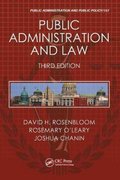Question
Consider two countries each with a monopolist that owns the only line of production of computer chips in the country. Let firm 1 be located
Consider two countries each with a monopolist that owns the only line of production of computer chips in the country. Let firm 1 be located in country 1 and firm 2 be located in country 2. Let qji (i {1, 2}, j {1, 2}) denote the output quantity sold by firm i in country j. Consequently, we denote by qi = q1i + q2i the total output produced by firm i {1, 2}, and by qj = qj1 +qj2 the total quantity sold in country j {1, 2}. The demand for computer chips in countries 1 and 2 is given by pj = a qj , j {1, 2}. The firms have no fixed costs of production, and identical constant marginal cost of production 0 < c < a. 3 (a) Assume, first, that the importation of computer chips into either country is prohibited because of a danger of spyware. This implies that q12 = q21 = 0 is set as a political constraint. What quantities q11 and q22 will the firms produce?
(b) At what prices will the firms sell their output? What are the firms' profits?
(c) Assume now that each of the countries decided that the threat of spyware is not significant, so that the firms are allowed to sell computer chips in a foreign country. However if a firm sells in a foreign country, it has to pay a tariff 0 < t < a c per each unit of output sold. Assume further, firms make their choices of pairs of quantities q1i , q2i (i = 1, 2) simultaneously. What output quantities will the firms choose in equilibrium?
(d) Derive the upper bound on the tariff t that ensures that the countries trade with each other.
Step by Step Solution
There are 3 Steps involved in it
Step: 1

Get Instant Access to Expert-Tailored Solutions
See step-by-step solutions with expert insights and AI powered tools for academic success
Step: 2

Step: 3

Ace Your Homework with AI
Get the answers you need in no time with our AI-driven, step-by-step assistance
Get Started


